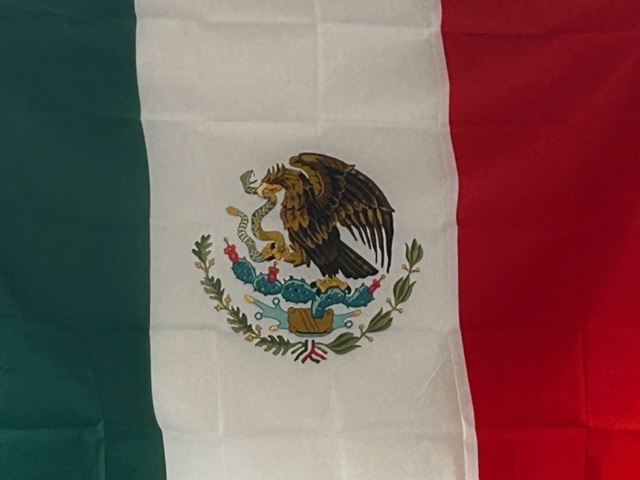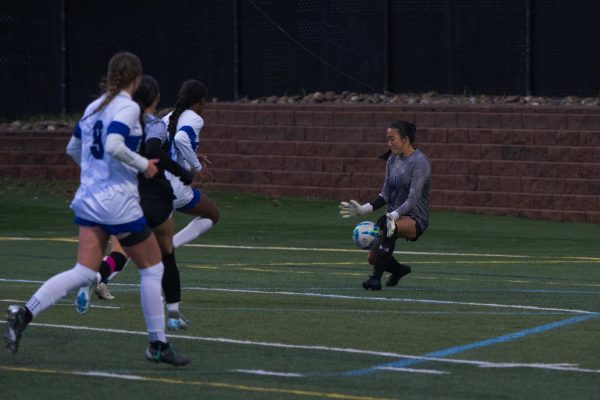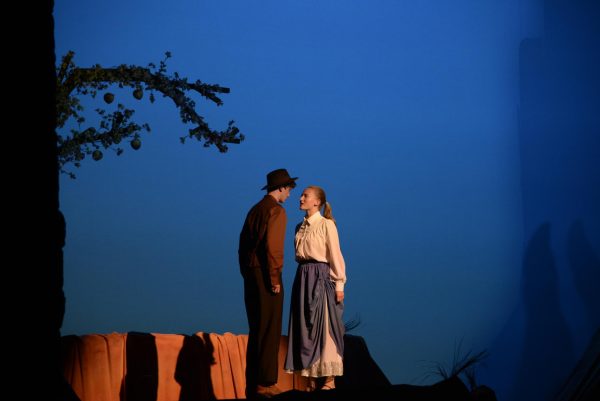Dia De La Bandera Mexicana: Day of the Mexican Flag
Dia de la Bandera Mexicana, or day of the Mexican flag, celebrated on the 24th of February is dedicated to celebrating the Mexican flag and what it represents.
The green of the flag represents victory and hope, the white represents unity, and the red represents the blood and sacrifice of Mexican heros.
The emblem with the cactus, serpent, and eagle symbolizes the Aztec empire, as the Aztecs took the site as a sign from the gods to build the empire there in the early 16th century.
“The Mexican flag is a beautiful symbol of cultural pride, of heritage, of origins, and of history that is oftentimes forgotten about, because all of that land in the southwest United States used to be part of Mexico before it was taken,” Spanish teacher Mr. Miguel Ortega said.
Mexicans all over the world take immense pride in the Mexican flag and Dia de la Bandera. The flag represents a large population of citizens who are proud of the country that they come from.
“I take pride in this day because the flag is a source of identity of Mexican heritage and the flag really tells a story,” sophomore Isla Aragonez said. “We really worked hard for where and who we are right now.”
Every culture has their own way of celebrating their holidays. Others simply make an excuse to see family on such a special day like Dia de la Bandera
“As Mexicans we love to get together and just any excuse to get together to make our favorite foods and just play music.” Aragonez said. “We’re just a very loud group of people.”
Taking additional steps to get recognition in the United States is critical in order to increase the teaching of Mexican history in U.S schools, which many people believe is currently lacking.
“I am kind of disappointed because I don’t know my history in Mexico,” Aragonez said. “I would love to dig a little deeper into who I am.”
Although they take pride in their heritage and Flag Day, Mexican-Americans wish the day was discussed and celebrated in the United States, as the southwestern United States was once part of Mexico.
“I think it would be great if the school took time to recognize the large amount of people of Mexican culture that are at Grandview as well as just a really important part of our country and its history,” Ortega said. “This entire place including Colorado, California, New Mexico, Arizona, parts of Texas, all those places used to be part of Mexico and still carry a lot of their traditions, language, culture, and cultural elements.”
Mexican-Americans tend to overlook this day because of the hardship that comes with immigrating to a new country and trying to assimilate into its culture.
“We don’t really celebrate it,” Aragonez said. “Ever since we immigrated from Mexico we kind of let those events go and culturized ourselves to American culture.”
Similarly, Ortega shared his experience of not feeling he could be proud of his Mexican heritage but has grown to embrace it over time, he has grown an overwhelming sense of pride in his heritage and embraces this pridefulness to its full capabilities.
“Growing up in the United States I can’t necessarily say that I was often allowed or taught to be proud of my Mexican heritage,” Ortega said. “So, I think having the flag hang in my room, having it around my house, in my car and all the different places is a really good way for me to remind myself and people around me of the people that I come from.”
Increasing representation across Grandview and other schools is extremely important as people would be more proud of themselves and their heritage. This day has a huge significance not just to Mexico but Latin Americans as well.
“[It is important for people to have] a bit of knowledge and [understand] what this day means to Mexicans or what this day means to Latin America,” Aragonez said. “People who are not from Mexico can see how special this means to us.”
There is immense hope that in the future, Dia de la Bandera will be acknowledged and celebrated throughout the United States. This would increase the celebration of Mexican culture and enable Mexican-Americans to have the opportunity to embrace their heritage.
“Whether you like it or not, we live in a multicultural society and that is something that we should embrace more than ignore or repress,” Ortega said.

Hi! I’m Esmeralda, and this is my senior year at Grandview and my third year on the Chronicle Staff. I am one of the Features Department Managers. Some...
Hi! I’m Laila, and this is my senior year at Grandview and my first year on The Chronicle Staff. I am a part of the Features Department. One of my favorite...












